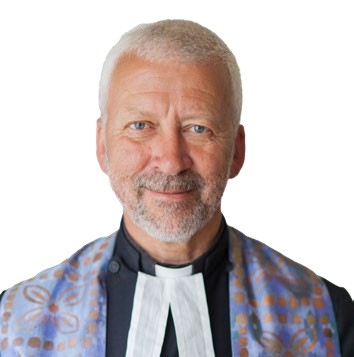‘Hard-wired for goodness’
The Rev Dr Richard Frazer considers the concept of ‘Original Blessing’.

The Rev Dr Richard Frazer
THE idea of Original Sin is something I have struggled with for years.
It is not a helpful concept. I know that I will get into trouble for saying that, but I have a book on my shelves called Original Blessing and my experience has led me to feel this is a much more helpful concept than reminding ourselves constantly of the wretched condition of our fallen nature.
John V Taylor was an Anglican Bishop and we corresponded after I read one of his books, The Go-Between God. In a letter, he suggested that if only we can accept the fact that we are acceptable to God, we begin to be better people without the need to carry the weight of our sin around with us like a millstone.
Jesus saved a woman accused of adultery from a stoning, and refused to condemn her. It was not approval of adulterous behaviour, but an offer of acceptance in spite of her flaws. I think we all need to hear that.
Neuroscience suggests that our brains develop in a healthy way when surrounded by love, nurturing relationships, kindness and acceptance. Where there is negative judgment, harshness, anger and deprivation of love the opposite is the case. We are, in other words, ‘hard wired’ for goodness.
In pastoral ministry, I have regularly come across people crippled by feelings of inadequacy, shame and guilt. It has led me, in my conduct of worship, to reflect very deeply on the place of confession in our prayers. We often do so much harm to ourselves that it feels unnecessary for the worship leader only to add to those feelings of guilt by spelling them out in detail.
I have often wondered if the concept of Original Sin is the problem. By telling us that we are utterly depraved we hesitate about going deep into ourselves for fear of what we might find there. Perhaps Original Sin, if it exists at all, is that unwillingness to go deep because we think we cannot become better people, so we refuse to grow as human beings and discover our essential identity as children of God.
Deep within us is something we share with the Divine Nature. We are in the image of God. In the deepest part of our being, that is who we are. Jesus desires our flourishing, just as he did for that unfortunate woman. It is the very heart of the Gospel’s message.
Self-loathing is therefore probably the nearest approximation to Original Sin. As someone put it, ‘a bad self-image is the root of our evil’. Bishop Taylor suggested we must learn to love ourselves and discover that inner self we share as children of God. We Christians have not always been good declaring that.
It is 42 years since I began preparing for ministry in the Church of Scotland. One of my first memories is of seminars with Dr Ruth Page at New College and finding a sense of joy and acceptance as she welcomed open conversation about faith. It was so good to be amongst people trying to make sense of our experience that had led to a call to ministry for many of us.
“
Neuroscience suggests that our brains develop in a healthy way when surrounded by love, nurturing relationships, kindness and acceptance.
Ruth was a terrific teacher. She did not tell us what we had to believe, she did not correct our wayward thinking. She brought things out of us, which is the best kind of teaching. Her gift as a teacher was that she saw the potential within each of us even though we were raw, unpolished students. She encouraged our God-given essential goodness, lighting the spark of the Spirit that kindled within us.
Original Blessing feels like a helpful idea to me.